Related Research Articles
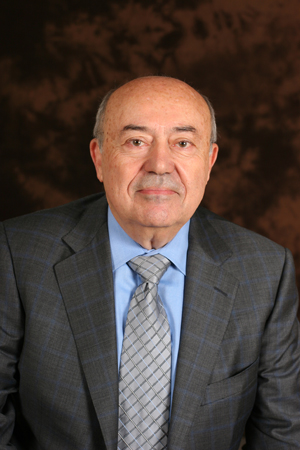
Andrew James Viterbi is an Italian Jewish–American electrical engineer and businessman who co-founded Qualcomm Inc. and invented the Viterbi algorithm. He is the Presidential Chair Professor of Electrical Engineering at the University of Southern California's Viterbi School of Engineering, which was named in his honor in 2004 in recognition of his $52 million gift.
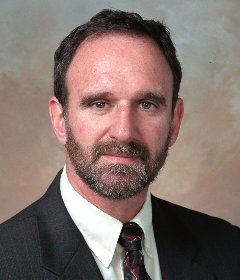
Martin Edward Hellman is an American cryptologist and mathematician, best known for his invention of public-key cryptography in cooperation with Whitfield Diffie and Ralph Merkle. Hellman is a longtime contributor to the computer privacy debate, and has applied risk analysis to a potential failure of nuclear deterrence.

Robert Gray Gallager is an American electrical engineer known for his work on information theory and communications networks.

Kornelis Antonie "Kees" Schouhamer Immink is a Dutch engineer, inventor, and entrepreneur, who pioneered and advanced the era of digital audio, video, and data recording, including popular digital media such as compact disc (CD), DVD and Blu-ray disc. He has been a prolific and influential engineer, who holds more than 1100 U.S. and international patents. A large portion of the commonly used audio and video playback and recording devices use technologies based on his work. His contributions to coding systems assisted the digital video and audio revolution, by enabling reliable data storage at information densities previously unattainable.
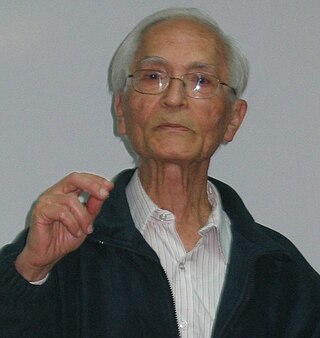
Jacob Ziv was an Israeli electrical engineer and information theorist who developed the LZ family of lossless data compression algorithms alongside Abraham Lempel.
Irving Stoy Reed was an American mathematician and engineer. He is best known for co-inventing a class of algebraic error-correcting and error-detecting codes known as Reed–Solomon codes in collaboration with Gustave Solomon. He also co-invented the Reed–Muller code.
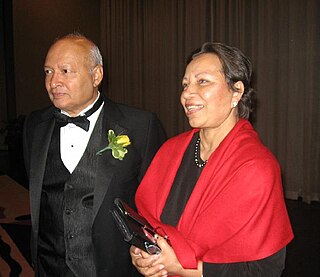
Thomas Kailath is an Indian born American electrical engineer, information theorist, control engineer, entrepreneur and the Hitachi America Professor of Engineering emeritus at Stanford University. Professor Kailath has authored several books, including the well-known book Linear Systems, which ranks as one of the most referenced books in the field of linear systems.
Richard E. Blahut, former chair of the Electrical and Computer Engineering Department at the University of Illinois at Urbana–Champaign, is best known for his work in information theory. He received his PhD Electrical Engineering from Cornell University in 1972.
Gottfried Ungerboeck is an Austrian communications engineer.
Joachim Hagenauer is an information theorist and professor emeritus at Technical University of Munich. He pioneered the use of soft bits, a coding theory technique that contributes to the high performance of the turbo codes.
Sergio Verdú is a former professor of electrical engineering and specialist in information theory. Until September 22, 2018, he was the Eugene Higgins Professor of Electrical Engineering at Princeton University, where he taught and conducted research on information theory in the Information Sciences and Systems Group. He was also affiliated with the program in Applied and Computational Mathematics. He was dismissed from the faculty following a university investigation of alleged sexual misconduct.
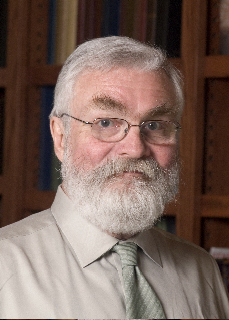
Robert M. Gray is an American information theorist, and the Alcatel-Lucent Professor of Electrical Engineering at Stanford University in Palo Alto, California. He is best known for his contributions to quantization and compression, particularly the development of vector quantization.
Ali H. Sayed is the dean of engineering at EPFL, where he teaches and conducts research on Adaptation, Learning, Statistical Signal Processing, and Signal Processing for Communications. He is the Director of the EPFL Adaptive Systems Laboratory. He has authored several books on estimation and filtering theories, including the textbook Adaptive Filters, published by Wiley & Sons in 2008. Professor Sayed received the degrees of Engineer and Master of Science in Electrical Engineering from the University of São Paulo, Brazil, in 1987 and 1989, respectively, and the Doctor of Philosophy degree in electrical engineering from Stanford University in 1992.
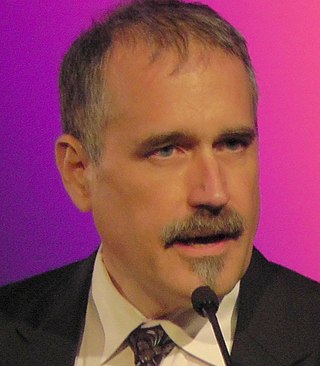
Alan Conrad Bovik is an American engineer, vision scientist, and educator. He is a professor at the University of Texas at Austin (UT-Austin), where he holds the Cockrell Family Regents Endowed Chair in the Cockrell School of Engineering and is Director of the Laboratory for Image and Video Engineering (LIVE). He is a faculty member in the UT-Austin Department of Electrical and Computer Engineering, the Machine Learning Laboratory, the Institute for Neuroscience, and the Wireless Networking and Communications Group.
Robert Arno Scholtz is a distinguished professor of electrical engineering at University of Southern California, known for ultra-wideband and spread spectrum communications.

John Mathew Cioffi is an American electrical engineer, educator and inventor who has made contributions in telecommunication system theory, specifically in coding theory and information theory. Best known as "the father of DSL," Cioffi's pioneering research was instrumental in making digital subscriber line (DSL) technology practical and has led to over 400 publications and more than 100 pending or issued patents, many of which are licensed.
Robert W. Brodersen was a professor emeritus of electrical engineering, and a founder of the Berkeley Wireless Research Center (BWRC) at the University of California, Berkeley.
Professor Shlomo Shamai (Shitz) (Hebrew: שלמה שמאי (שיץ) ) is a distinguished professor at the Department of Electrical engineering at the Technion − Israel Institute of Technology. Professor Shamai is an information theorist and winner of the 2011 Shannon Award.
David Albert Huffman was an American pioneer in computer science, known for his Huffman coding. He was also one of the pioneers in the field of mathematical origami.
Giuseppe Caire is an Italian telecommunications engineer.
References
- ↑ Anderson, Margo (April 20, 2016). "David Forney: The Man Who Launched a Million Modems". IEEE Spectrum.
- ↑ G. D. Forney. The Viterbi algorithm. Proceedings of the IEEE 61(3):268–278, March 1973.
- ↑ G. David Forney Jr (March 8, 2005). The Viterbi Algorithm: A Personal History. Viterbi Conference, University of Southern California, Los Angeles. arXiv: cs/0504020v2 . Bibcode:2005cs........4020F.
- ↑ "G. David Forney, Jr". IEEE Global History Network. Retrieved August 8, 2013.
- ↑ "IEEE Edison Medal Recipients" (PDF). IEEE. Archived from the original (PDF) on June 19, 2010. Retrieved January 2, 2011.
- ↑ "Claude E. Shannon Award". IEEE Information Theory Society. Archived from the original on June 30, 2012. Retrieved January 5, 2011.
- ↑ "IEEE Donald G. Fink Prize Paper Award Recipients" (PDF). IEEE. Archived from the original (PDF) on November 24, 2010. Retrieved January 2, 2011.
- ↑ "Golden Jubilee Awards for Technological Innovation". IEEE Information Theory Society. Retrieved July 14, 2011.
- ↑ "IEEE Medal of Honor Recipients" (PDF). IEEE. Archived from the original (PDF) on April 22, 2015. Retrieved December 8, 2015.